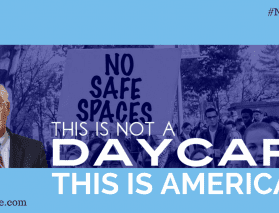It’s not often you stumble upon simple truths neatly packaged. Well, maybe you hang out with smarter people than I do. Over many years of thinking, reading, and — hopefully — learning, I kept returning to 9 words representing 3 truths that seemed to change everything.
 Students at the school where I led and served for a dozen years will quickly recognize these 9 words. They’ve heard them often enough. If you listen carefully, you may even hear them groaning as I write them. They’ll be quick to tell you that I packaged them neatly in a handy-dandy acrostic to make it even easier to commit these transforming truths to memory.
Students at the school where I led and served for a dozen years will quickly recognize these 9 words. They’ve heard them often enough. If you listen carefully, you may even hear them groaning as I write them. They’ll be quick to tell you that I packaged them neatly in a handy-dandy acrostic to make it even easier to commit these transforming truths to memory.
Ya, they’re that important.
The 9 words aren’t original to me. Not surprising since the writer of Ecclesiastes tells us that there is nothing new under the sun. I only organized them into a succinct package and humbly offer them here for your inspection.
It’s not that the words themselves serve as some magical spell that, if chanted in the key of E when the moon is full on the third Tuesday after the ides of March, will conjure up mystical diving powers. Nope. Nothing like that.
But they are deep truths with far-reaching implications for all of life. In fact, I find that the deeper I delve into these truths, the more I discover about them — rather like the mythical mines of Moria of Tolkien fame. The first passageway entered doesn’t look all that impressive. It’s rather dull actually. But the deeper I delve, the more wonders I uncover. Some ideological passageways lead to epiphanic moments, like stumbling into the breathtaking great halls of Durin. Still others awaken darker thoughts that I would prefer to avoid but must confront by faith on my own Bridge of Khazad-dum.
But enough of the literary analogies.
Here are the 9 words that change everything. I offer them as an introduction, as a conversation starter, not as a thorough treatment of the staggering implications. Each is worthy of its own post — if not its own multiple-volume series.
W-I-N
- Words Have Meaning. You might think that since you’re reading words right now that all would assume that words have objective meaning on which we can all mostly agree. Not so. Indeed, many today and throughout history would vehemently deny that there is any meaning at all — to anything. And they would use words to do so. Thereby contradicting the very claim they so passionately make. This truth claim that words have objective meaning has staggering implications for Christ-followers for He is the Word made flesh and has chosen to reveal Himself most fully to us through words in Scripture. It is in the study of that Word that this truth is most neglected by modern Christianity as we’ve embraced relativistic thinking that says we can use the same words as writers of Scripture and yet mean the exact opposite of their clear intent. And that’s OK.
- Ideas Have Consequences. “Out of the abundance of the heart, the mouth speaks” — and we act. What we think determines what we do. We need but look at the carnage wrought by humanistic ideas in the twentieth century for historical confirmation. To be fair, we can also look at those unfortunate seasons in Christianity where we wedded the church to the ambitions of the state and see tragic results. We do not think in a vacuum. Our ideas will lead to actions. And actions produce consequences in a cause-and-effect universe. Thus our ever urgent need to guard our heart “for out of it spring the issues of life.” If you want to change yourself and the world (not a bad idea itself) start with intentionally absorbing better ideas. Better ideas produce better consequences. Inevitably.
- Nothing Is Neutral. Watching the nightly news should be enough to alert us that we all must approach all things from a unique perspective. Call it bias, but we cannot help but have it. We understand everything within a broader context, a framework of thought, if you will. Often when my students heard this claim, they would challenge it by asking, “How is a pencil not neutral? Isn’t it just a pencil?” But that question itself evidenced a subtle assumption that matter exists autonomously apart from a Creator who gives it meaning. In fact, we can see the pencil as a random collection of atoms brought together through arbitrary natural laws that work for the moment but could fail tomorrow and with which we could write something — or nothing — it’s really all the same. Or we can view it as evidence of a rational and orderly universe that sprang from a rational and orderly Creator for His sovereign purposes and comes with responsibility to that Creator to use it as He sees fit. Those two perspectives take us in radically different directions when it comes time for us to decide how, or if, we will put the pencil to use.
I warned that this was but an introduction to these 9 words that change everything.
What do you see as further implications of these 9 words, assuming, of course, that you think words have meaning at all? I challenge you to think about them for a bit and then leave a comment here to share your thoughts so we can all grow.











